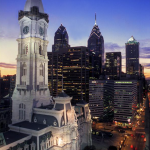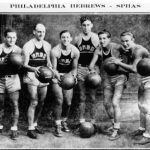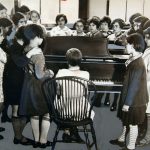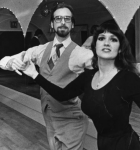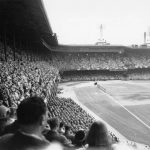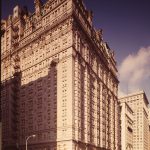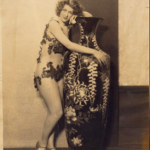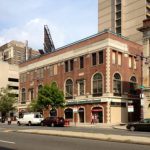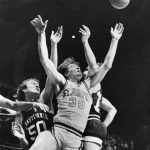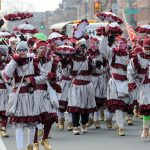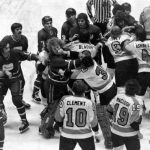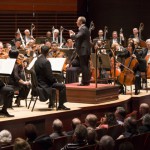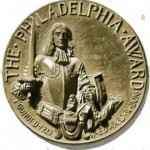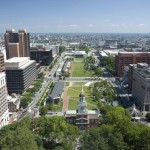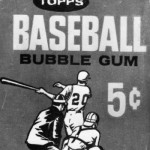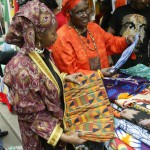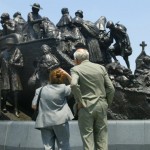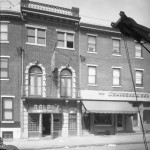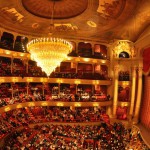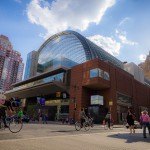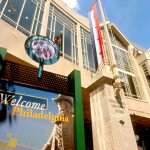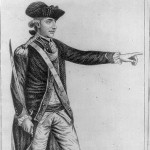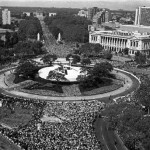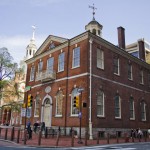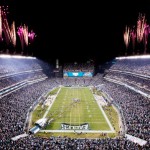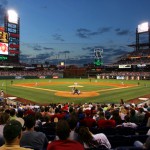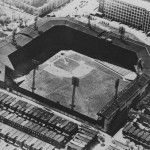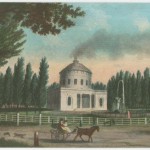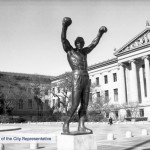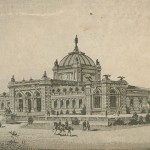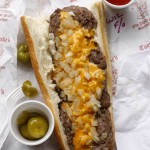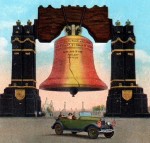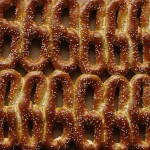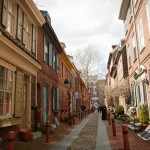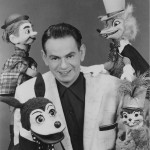Philadelphia, the Place that Loves You Back
Essay
What does it mean if a place loves you back? That was the question posed by the Greater Philadelphia Tourism Marketing Corporation (GPTMC) when it chose the slogan “The Place That Loves You Back” to promote the Philadelphia region as a tourist destination in its 1997 advertising campaign. This was of course not the city’s first attempt to sell itself as a tourist destination, but it marked a departure from previous attempts that mostly focused on Philadelphia’s ample stock of historically significant artifacts in Center City (“America’s most historic square mile”) such as Independence Hall and the Liberty Bell, none of which could be said to necessarily “love you back.”
The odd claim that something as abstract as a place loves you grabs your attention, sticks in your head, and thus makes for a successful slogan. It also provided a reply and a challenge to the “I Love New York” slogan – and indeed, a large portion of the print ads that used the “Place that Loves You Back” showed up in New York magazine. The slogan was also meant to conjure up Philadelphia’s heritage as the “City of Brotherly Love,” infused with the Quaker values of universal love, nonviolence, tolerance, and equality.
Yet the claim that Philadelphia loves you is really the opposite of Quaker-inspired universal love. The slogan suggested intimacy, while universal love is cold and impersonal. If I love everyone, I love no one in particular. And Philadelphia has indeed often been perceived as a uniquely cold and unwelcoming place, as explained by sociologist and native Philadelphian Digby Baltzell in his 1979 book Puritan Boston and Quaker Philadelphia. According to Baltzell, the radical equality and antiauthoritarianism of the city’s Quaker leaders fostered a uniquely individualistic culture that was more tolerant of dissent than the more paternalistic culture fostered by the authoritarian Puritan leaders of Boston. The culture of Philadelphia was one in which people tended to disavow leadership roles and break off into inward-looking groups that were inhospitable to outsiders. As first lady Abigail Adams, who was forced to live in Philadelphia on account of her husband being the president, wrote in a letter to her sister in 1798, “These Philadelphians are a strange set of people…They have the least feeling of real genuine politeness of any people with whom I am acquainted.”
A big city’s reputation is of course always a fiction in that it cannot describe much of what actually happens in such a large place, but it is also very real in that it sets people’s expectations and defines their shared understanding of the community in which they live and work, and which others visit – or choose not to visit, as the case may be. And Philadelphia maintained its antisocial reputation for at least two centuries. One of the characters in Mark Twain and Charles Dudley Warner’s 1873 novel The Gilded Age noted of Washington, D.C., that “it doesn’t need a crowbar to break your way into society there as it does in Philadelphia.” Forty years later journalist Edward Hungerford commented in his book Personality of American Cities, that “there is little use carrying social ambitions to Philadelphia. . . No city in the land, not even Boston or Charleston, opens its doors more reluctantly to strange faces and strange names, than open these doors of the old houses roundabout Rittenhouse Square.” The same reputation was captured later by the comic actor W.C. Fields in a series of now-legendary quotes, such as, “Last week I went to Philadelphia, but it was closed.”
Negative Undercurrents
Though generally considered a negative characteristic, Philadelphia’s antisocial reputation was intimately connected to the city’s perceived virtues – the opposite side of the coin of tolerance and acceptance is indifference and disregard. How else could we explain the pride that Philadelphians have traditionally taken in their antisocial reputation? As Baltzell noted, “Cheering against the home team is a time-honored tradition in Philadelphia.” Pride in Philadelphia’s antisocial reputation was captured in a notorious billboard that hung over the city’s Schuylkill Expressway in 1972, designed to promote a chamber of commerce event, though it became one of the better-known slogans for the city: “Philadelphia isn’t as bad as Philadelphians say it is.”
Not surprisingly, Philadelphia’s reputation did not help the city’s tourism industry, which by the 1990s had great potential. Big American cities, having recovered from high crime rates in the previous decades, were becoming increasingly popular sites for entertainment and leisure, yet a 1995 Pew Charitable Trusts report found that “Philadelphia has a negative image as a vacation destination” and, “Despite the fact that Philadelphia does have good product, the perceptions – and therefore the reality – among potential travelers is that the product is weak.” Thus the state legislature and the city in 1996 established the GPTMC, funded primarily through a 1 percent hotel sales tax, and tasked with selling Philadelphia to the leisure travel market. The GPTMC hired the firm Longwoods International to do an initial market survey, which found that people who had visited the city within the previous three years were more likely to rate it positively – in terms of being more likely to say that they “strongly agreed” that there were such urban amenities available as “excellent shopping” – than people who had never visited. The conclusion of Bill Siegel, Longwoods CEO and Chairman, was that “To know Philadelphia is to love it.”
Longwoods estimated that the “Place That Loves You Back” campaign attracted over 1 million new tourists to the region, and in 2010 the GPTMC reported 10 million more leisure visitors than in 1997. Philadelphia has thus arguably at least partially overcome its antisocial reputation as it has been promoted as a warm and welcoming place. As Bill Cosby says in one 1997 ad, in a stark reversal of how the city had previously been represented, “there’s nothing warmer than the hearts of THE PEOPLE who live here, in THE FRIENDLIEST CITY in America. My friends, come visit THE WARMEST PLACE ON EARTH.”
Since the city’s antisocial reputation also defined some of the city’s perceived virtues of tolerance and acceptance, it seems worth asking what shared sense of community we gave up in selling ourselves more successfully to tourists. “The Place that Loves You Back” suggests that we offered to welcome tourists into a warm and intimate community. We want you to have fun; in fact, we’re going to insist that you have fun, because we love you and we care. But in making this new offer, have we forsaken the mixed history of tolerance and indifference that allowed anyone to come here and do what he or she wanted while the rest of us didn’t care?
Richardson Dilworth is Associate Professor and Director of the Center for Public Policy at Drexel University. His books include Social Capital in the City: Community and Civic Life in Philadelphia (Philadelphia: Temple University Press, 2006). (Author information current at time of publication.)
This essay is published in partnership with the Historical Society of Pennsylvania, with support from the Pennsylvania Humanities Council.
Map
Timeline
Links
- Audio, "Philadelphia, the Place that Loves You Back," Greater Philadelphia Roundtable discussion, February 22, 2012, Independence Visitor Center
- Summary, "Philadelphia the Place that Loves You Back," Greater Philadelphia Roundtable, February 22, 2012, Independence Visitor Center
- Visit Philadelphia (Greater Philadelphia Tourism Marketing Corporation)
- Economic impact of Philadelphia tourism? Not everyone agrees (Philadelphia Business Journal, March 5, 2014)

